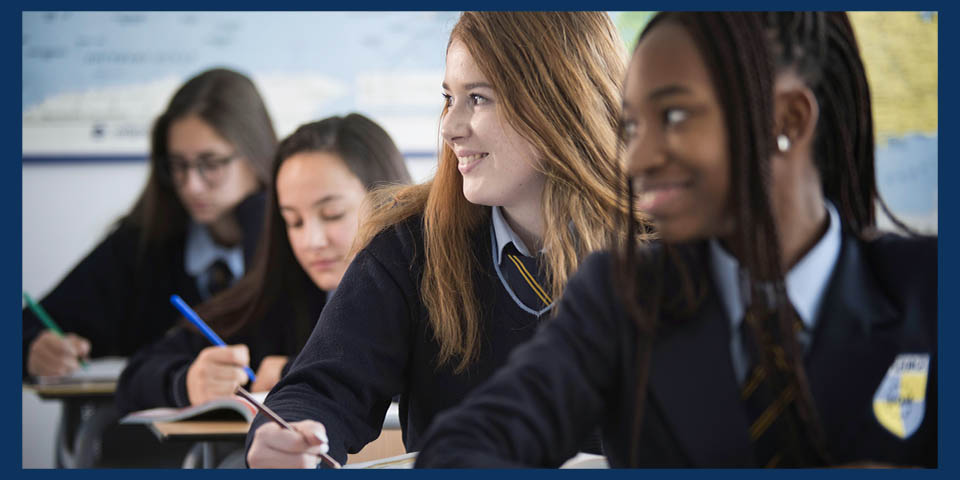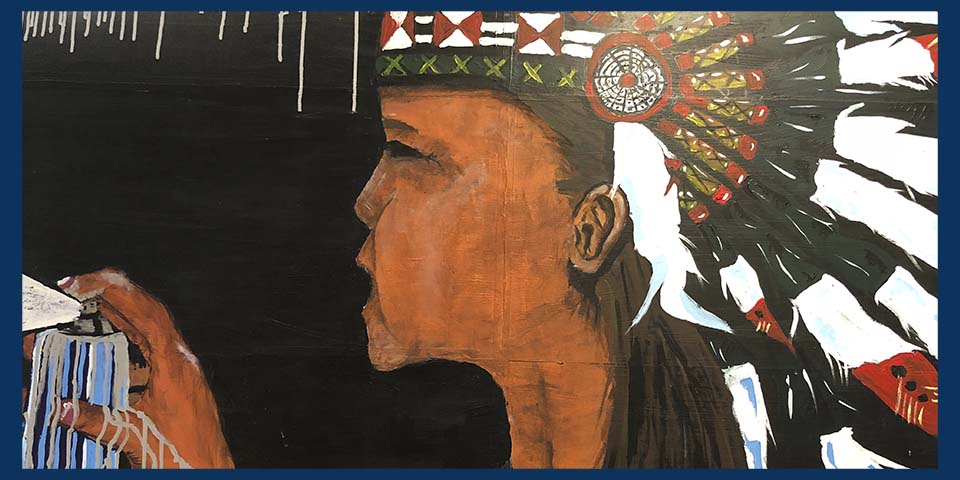St. George School will offer the International Baccalaureate (IB)c next school year, joining an educational programme recognised as one of the best in the world.
Follow the International Baccalaureate entirely in English at St. George School.
What is the International Baccalaureate?
The International Baccalaureate at St. George School, which is designed for students from 16 to 19 years old, offers an important advantage; it will be taught entirely in English by native teachers. This makes St. George the only British international school in Madrid to offer this programme exclusively in English.
Another interesting aspect to highlight, before explaining the programme in greater detail, is that on completion of the IB, students can apply to both Spanish and international universities. This baccalaureate has many benefits, benefits that we will try to explain in this article.
The mission statement of the IB leaves no room for doubt. The International Baccalaureate “aims to develop inquiring, knowledgeable and caring young people who help to create a better and more peaceful world through intercultural understanding and respect.”
Educational Philosophy of the International Baccalaureate
The IB places great emphasis, within their educational philosophy, on encouraging students from all over the world to “adopt an active attitude of learning throughout their lives, to be compassionate and to understand that other people, with their differences, may also be right.”
British teacher Alec Peterson, the first International Baccalaureate General Director and mastermind behind the design of its curriculum, cited one of the main ideas of the programme, when he referred to the objectives in terms of student outcomes: “critical analysis and learning to learn, instead of accumulating encyclopedic knowledge and memorising.”
The International Baccalaureate programme has become a unique and original teaching tool that helps students achieve their personal goals, developing their creativity, stimulating their critical spirit and expanding their social awareness and international perspective.

History of the International Baccalaureate
Origins of the IB – The international educational foundation was created in 1968 in Geneva, Switzerland, when the need to change the format of more traditional teaching (memorisation, standardisation of contents, closed classrooms, insular focus) for a more progressive approach (critical analysis, comprehensive education, open spaces, evaluation of skills) was highlighted.
Along the way, the IB has been enriched by its own experiences and has been expanded by thousands of schools that have adopted this type of approach thanks to the impressive results obtained.
Thus, the following data serves to demonstrate the roots that the international baccalaureate has acquired throughout the world. In 1971 there were 681 students registered to sit IB exams, with 749 enrolled in the programme worldwide. While at the end of 2016, 161,000 students registered for the exams, with a total number of over 1.2 million students and 4,538 schools registered worldwide.

The International Baccalaureate Curriculum
The Diploma Programme (DP) of the International Baccalaureate offers a specific curriculum for students from 16 to 19 years old, consisting of six subject groups and the core components of: theory of knowledge (TOK) and creativity, activity and service (CAS), along with the extended essay. Below we explain the subjects and break down these core components.
The subject groups of the International Baccalaureate are (each group includes different courses):
- The Arts
- Sciences
- Studies in language and literature
- Language acquisition
- Individuals and Societies
- Mathematics
Regarding core components, there are three, as mentioned previously, and each theme focuses on:
– Creativity, activity and service: young people complete a project that relates to these three concepts.
– Theory of Knowledge: students reflect on the nature of knowledge and on how we know what we claim to know.
– The extended essay: an independent, self-directed piece of research, finishing with a 4,000-word paper.
Once completed, the programme results confirm that schools have managed to educate students to acheive an outstanding depth of knowledge in their chosen subjects, along with “physical, intellectual, ethical and emotional growth”, in accordance with IB principles.
From this, and from research carried out over the last few years, we know that, in the vast majority of cases, International Baccalaureate students obtain better results than students following other programmes.
The IB publishes these reports on a regular basis, which analyse the impact of baccalaureate programmes, as well as many others that are currently taught. Research is carried out in collaboration with universities and external entities.
Obtaining authorisation to teach the International Baccalaureate
One further aspect that highlights the value of the IB: to be able to teach it, schools must obtain authorisation. For this, the school must demonstrate the quality of its teaching and must also adapt its educational model to the specifications of the IB program.
The intention of the article you have just read was to provide you with as many details as possible on the International Baccalaureate and also to express the reasons why St. George School has decided to add the internationally renowned and hugely successful IB Diploma Programme to its Madrid centre.
The difference between ours and other study centres, is that at St. George School the baccalaureate will be taught entirely in English, with native teachers. St. George is a private British school, with students from over 40 different nationalities.
The school strives to provide educational excellence while maintaining its teaching philosophy with an emphasis on solidarity, effort and respect, as was recently reported in an article dedicated to the school: “St. George, happy and motivated students“.
So, if you have any doubt or if you need further information, don’t hesitate to contact us. We will be pleased to help you anytime!

